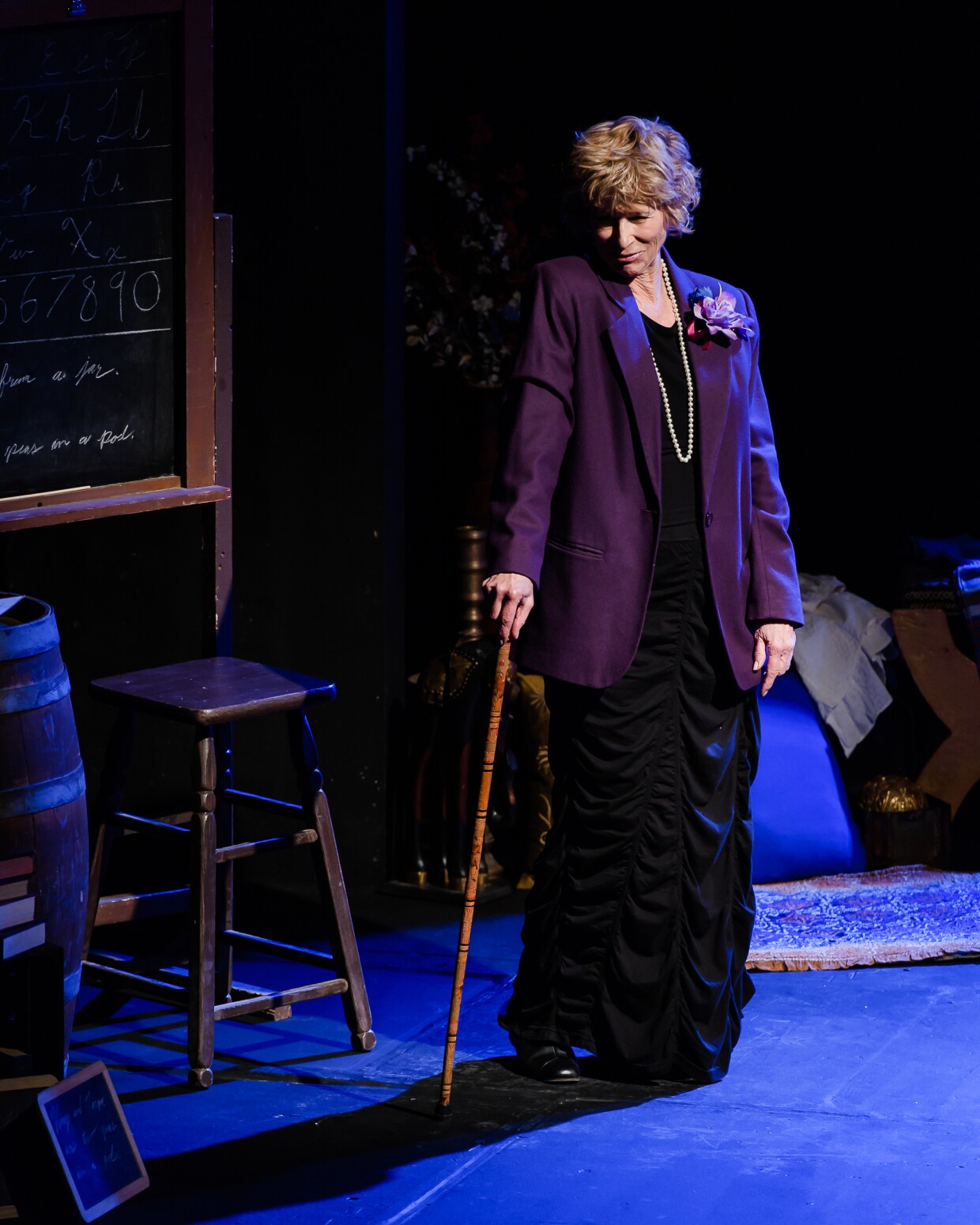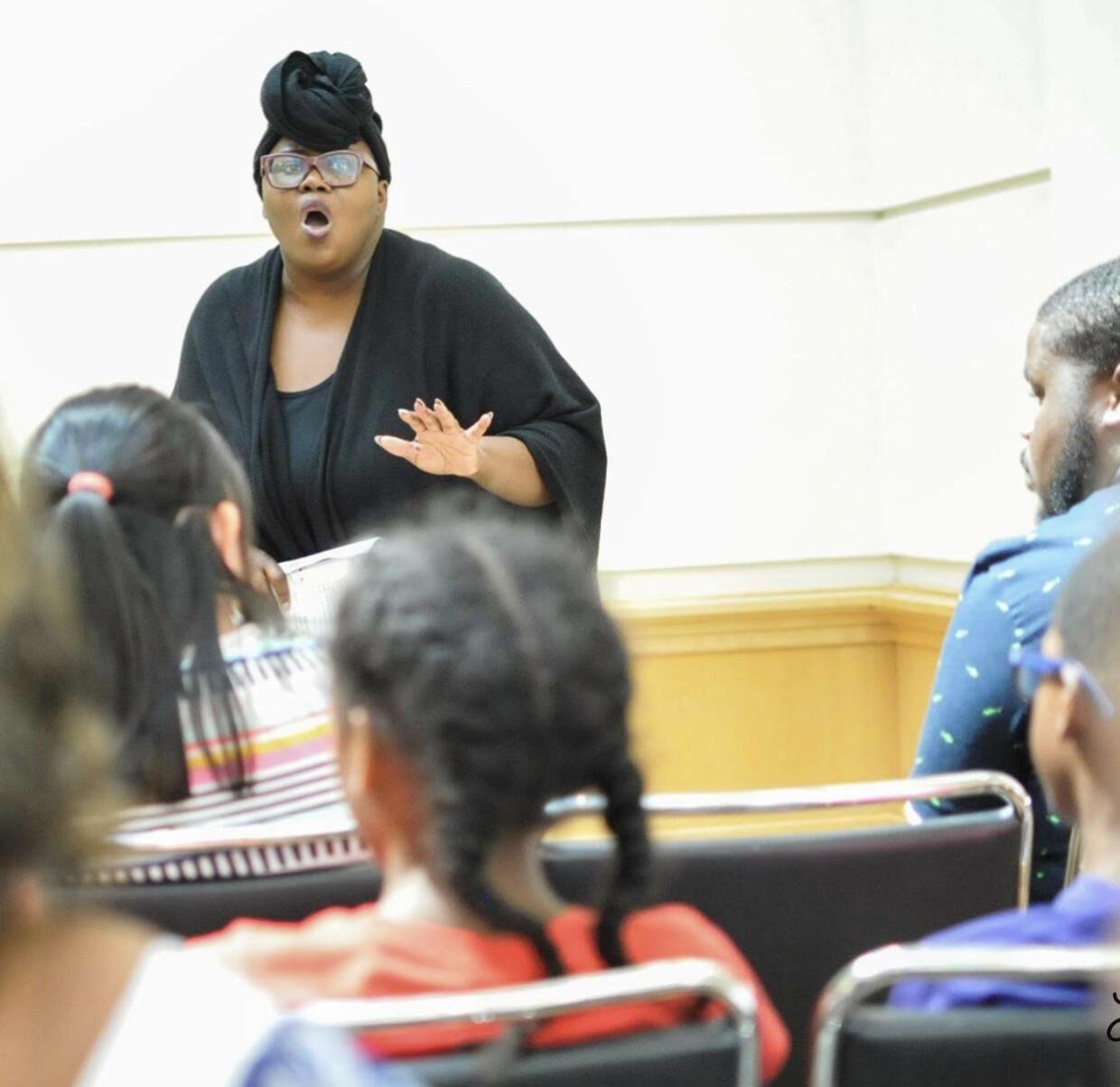Annette Hubbell wrote a one-woman show. In it, she portrays historical figures – white, like herself, and Black.
“It never occurred to me that that might even be an issue,” she said. “I was telling their stories, bringing them alive.”
Rancho Santa Fe Library asked her to perform her show for Women’s History Month in 2024, she said. She gave them a list of characters to pick from. They chose Harriet Beecher Stowe, a white abolitionist, Mary McLeod Bethune, a Black educator and civil rights leader, and Harriet Tubman, who escaped slavery and led others to freedom along the Underground Railroad.
A couple weeks before the show, Hubbell said, they asked her to swap out Bethune and Tubman for white characters.
“And I said, ‘Why?’ And they said, she said, ‘Because it's not appropriate for you to be doing this. You're a white woman.’ And I said, ‘Oh, no, no, no, you don't understand. I'm honoring these women I have so carefully researched,” Hubbell said. “And she said, ‘That doesn't matter.’ And I said, ‘You mean I'm only to perform women whose stories of bravery and courage should be told if they're white?’ And she said, ‘That's pretty much it.’ So I'm not getting it. So I said, ‘Well, tell me how this is different from the ‘Hamilton’ play.’”
In Hamilton, non-white actors portray white historical figures.
“And she replied, ‘That was historically different.’ And I said, ‘I don’t understand that. Explain that, please.’ And she said, ‘I can’t explain it. And frankly, I’m quite baffled that you don’t understand,’” Hubbell recounted.
The debate escalated to the county’s diversity and inclusion team, who affirmed the decision; Hubbell would have to swap out the characters.
“And my first thought was, why wasn’t I invited to this meeting if it’s inclusion?” Hubbell said.
She refused to change the characters.
“If they had come to me and said, ‘Somebody in our library really likes Corrie Ten Boom and Gladys Aylward, white characters, would you change out two of your characters for them?’ I would have said, ‘Sure.’ But because they said it was because I was white and they were Black, I said, ‘That has nothing to do with it. No, I won't.’”
The library cancelled her performance.

The County declined to comment on pending litigation. In an email, County spokesperson Donna Durckel said, “ The San Diego County Library remains steadfast in its mission to promote an inclusive and welcoming environment for all that promotes learning, civic engagement and community connection.”
Hubbell doesn’t use makeup for her characters, just costume changes.
“I think if people thought I was doing blackface or a parody of these people not respecting them, then that might be a cause for an objection. But all they have to do is read my stories and the testimonies on my website and they would see how deeply I respect and honor and admire these people,” she said.
Hubbell posted on Facebook about the library cancelling her show.
The San Diego Union Tribune published an opinion piece by former San Diego city attorney Jan Goldsmith supporting her. A lawyer from the Pacific Legal Foundation read it.
“And they called me and said, ‘This is horrific,’” Hubbell said. “‘We need to do something about this.’”
Hubbell said the lawyer convinced her to sue.
“If these women that I portray fought against such injustice and such egregious wrongdoings in their lives, who am I to stop at fighting this?” Hubbell said.
Pacific Legal Foundation’s website says it fights for individual liberties.
It’s filed suits against implicit bias training, “race quotas” for licensing boards, programs meant to close racial opportunity gaps and more.
Hubbell’s lawyer, Chris Barnewolt, said they aim to set legal precedent.
“We do this because we’re interested in the impact,” he said. “We want to send a clear message that the government has a duty to every individual to treat them equally and to treat them fairly. If the San Diego County government can make decisions based on race in this instance, then any county or local government could do the same. And we want to make sure that that stops here.”
So-called “reverse discrimination” suits stretch back to at least the 1970s.
Recently, high profile cases have made headlines again, like the Supreme Court ruling against considering race in college admissions.
They are being filed across the country, with a slew in California and locally in San Diego. After a white plaintiff sued, the City of San Diego removed the race requirement from a program meant to help people of color buy their first home.
These lawsuits rely on laws enacted after slavery and the Civil Rights Movement that were meant to address discrimination particularly against formerly enslaved African Americans, said Dan Eaton, a legal analyst.
But the reasons a law was written don’t really matter in a court of law – only what the words say.
“What we are seeing as the law has evolved, is the application of these laws – or constitutional amendments, as the case may be – to claims by members of the majority,” Eaton said.
“It’s been really interesting to see that all be turned on its head,” said Angie Chandler, who’s advised arts institutions across the country, including in San Diego.
She advocates, in part, for more stage time for Black playwrights and actors.
Chandler has also played Harriet Tubman.
“Even as a Black woman, it was one of the most difficult roles I've ever had to play,” she said.

She’d love to play Mary McLeod Bethune, whose body, she said, was central to her experience.
“A woman over 200 pounds, dark-skinned Black woman living in the 1800s and 1900s in this country. There is not a way that I can even invite you into what it's like to walk around this country in a similar body in 2020, and in 2025. Physically objectified, stared at.”
Hubbell’s performance is not the same as the colorblind casting in “Hamilton,” she said.
“It’s not a two-way street because colorblindness is a response,” she said. “A response to historic exclusion, to the erasure of our stories and our parts of different chapters in history in this country.”
She said any defense of Hubbell’s performance also ignores the harmful history of white people portraying people of color – not just “blackface” and “yellowface” but the centuries-long fight for roles for non-white actors that go beyond stereotypes, which she said is still ongoing today.
The creation of American theatre didn’t happen in a vacuum, but in a starkly divided and racist society, she said.
“The foundation of the American arts movement means that it will never be as simple, innocent and neutral for a white person to attempt to tell or perform the story of a Black person.”
Under the letter of the law, that may not matter.





